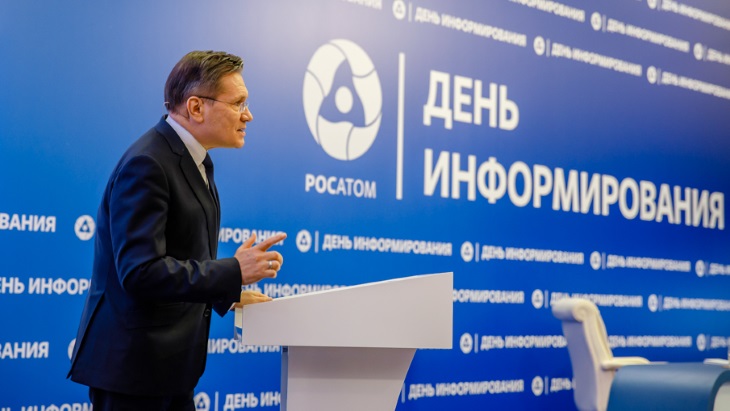The Russian state nuclear corporation's director general, Alexey Likhachov, made the announcement on 5 March, at Rosatom's first 'information day' this year. The text of his statement was published yesterday by the company's in-house magazine Strana Rosatom.
At the end of 2020, nuclear power's share of Russia's energy mix stood at 20.28%. The country has 11 nuclear power plants in operation, including the floating nuclear power plant Akademik Lomonosov. These comprise 37 units with a total installed capacity of about 29.4 GWe. Nuclear power generated a record amount of electricity for Russia last year, of almost 215.8 TWh.
The difficulties presented by the pandemic make this achievement, among others, "all the more valuable", Likhachov said.
"The environmental agenda and climate change are becoming increasingly important in the world. Domestic challenges are becoming more complex and voluminous. The President and the government are counting on our competences, increasingly using the state corporation in the technological rearmament of the domestic economy. The main thing is to go from the regime of the epidemic to the mode of development. In the near future, each division and all enterprises will present their programmes to increase revenue and reduce costs," he said.
The company's strategy, Rosatom Vision-2030, which its supervisory board updated last year, targets an increase in revenue to RUB4 trillion (USD54 billion) "with a significant expansion in the share of new products and foreign orders, new technologies with mandatory export potential and qualitative changes in Rosatom itself: erasing internal boundaries between enterprises and divisions, as well as the creation of an industry environment for the development of employees", he added.
Revenue from new products will need to increase by about 20% annually to reach the 2030 target. "This requires qualitative changes, we can say, a quantum leap," he said. "Wind power, nuclear medicine, digital products, composite materials - these areas have already grown stronger and come out of the 'kindergarten age', and now we expect them to make a real economic return."
On the launch of its programme Development of technology and research in the use of nuclear energy, Likhachov highlighted "presidential support" for the so-called Big Sarov project, with the opening of a branch of Moscow State University and the construction of an academic city.
"Our other nuclear centre, VNIITF [All-Russian Research Institute of Experimental Physics], is working on the development of natural gas conversion technology for the development of hydrogen energy and the use of hydrogen in industry. This project was given the provisional name 'New Snezhinsk'. We are counting on interaction with large gas companies," he said.






_45278.jpg)
_28178.jpg)
_66891.jpg)





